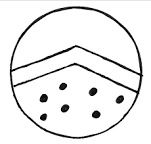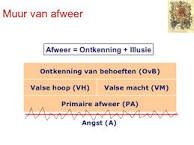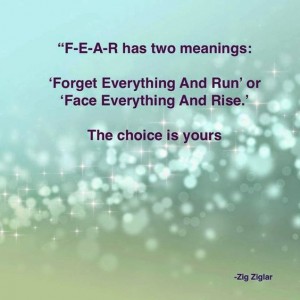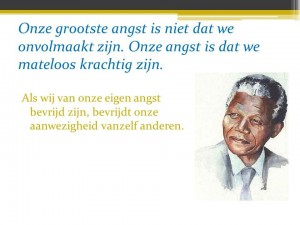PRI (Past Reality Integration) en het innerlijke kind
PRI at all about the pain of the past(innerlijk kind) which is felt and triggered by something happening now. The here-and-now is the mirror of what we have experienced as a child without us understand that without us being aware of it. The response we give is a defense of our old pain, defense mechanisms are described below in the wall of immune and further. That defense is to the old pain, but not to feel. Amerikanen zeggen: ‘No pain, no gain’. The defense saves us as a child but provides much misery when we are adults.
Nisargadatta zei: Between the banks of pain and pleasure, the river, Only when thought and feeling beaches on one of the banks and not going with the flow creates misery!’. We make the mistake that we just want to have fun, just fine..
Jung zei: We worden niet verlicht door ons lichtgestalten voor te stellen, maar door ons bewust te worden van onze duistere zijde’ En Rumi zei: ‘Wie zijn gebreken niet kent is zijn eigen vijand’, wijze raad
The circle is you: the conscious and unconscious, The black dots are the traumatic experiences from your childhood you behind the line above it hidden because they were unbearable and therefore have dissociated (moved into your subconscious), your subconscious is 10x stronger than your conscious and thus controls the your life. Freud saw good, and also Osho
The top line is the wall of defense, hereinafter referred to as the defense mechanisms have been put in Scheme:
Fear reigns most of us and is the counterpart of love. went as follows a dialogue between pupil and master:
Learner: 'What is love?’
Meester: "That's what the fear dissipates!’
Learner: "What we are most afraid of?’
Meester: 'For the love!’
Amerikanen zeggen: FEAR: False Evidence Appearing Real
I wrote to find an article about anxiety : "Fear determines that your life?!’. I'd mail it to you if desired.
Waar angst heerst kan wijsheid niet aanwezig zijn – Lactantius. Iemand zei ook dat waar angst regeert, niet wordt geleerd
Het kwade voedt zich met angst en probeert het dus tot levensmotto te verheffen
Schopenhauer showed a sense of humor when he said: 'The sages have always said the same century after century and century after century the people have always the same, namely, the opposite is done!!!’. What did the wise: "Did you and your neighbor and know yourself ', what people do?: They are guided by fear instead of love and do not know themselves "and therefore do indeed the opposite of what the sages say. Lao tse zei: 'As other intelligent kent is, who knows himself is enlightened!’
Above the fear is the primary defense what I sometimes call the inner critic, it is also formed in childhood when 9 of the 10 messages you received were negative, and drag your unconscious with you, to internalize your, you say to yourself that you are not okay, not good enough, dom bent, etc. If your parents do not or not enough love to give you pull from it the conclusion that it is up to you that you are not worthy of their love and that is intolerable, then, you put it behind your wall and dissociating you
At False hope you go out of the formula: 'As…dan…”. Once I have a partner I will be happy and once I do I'll be happy a good job. It's what delude yourself and if you're not happy you will therefore not be. An American woman skew the good book : ‘Happy for no reason’, it is a state of being and is not caused by something outside, that's false hope that you think it comes from outside
At False power you get angry at the other person and give him or her the debt and let you apply, it's an overcompensation of deeply felt powerlessness, if you want, you have power not talking about yourself you will practice on others. Het is ook eisen stellen zoals een kennis zei: ‘Ik wil respect’, toen ik hem zei dat hij dan eerst zichzelf moest respecteren werd hij woedend(ook valse macht!). Bij valse macht maken we de ander bang en Lao tse zei: ‘Iemand voor wie mensen bang zijn, is bang voor mensen’….
Ontkenning van behoeften is de moeilijkst te bestrijden afweer omdat je dan zegt dat er met jou niks aan de hand is en je geen hulp nodig hebt of zoals een man zei: ‘Voor mij hoeft er niks meer, ik heb niks nodig’. Het is ontstaan toen we geen aandacht kregen toen we het wel nodig hadden en toen besloten we om onze behoeften niet belangrijk meer te vinden en gingen we bezig met het vervullen van de behoeften van anderen, samen met primaire afweer kom je dan tot codependentie
Angst zegt: ‘Ik ben bang dat de mensen me niet respecteren’
Primaire afweer zegt: ‘Ik verdien geen respect’
Valse hoop zegt: ‘Als ze me zouden respecteren zou ik gelukkig zijn’
Valse macht zegt: ‘Ik eis dat ze me respecteren en dwing het af’
Ontkenning van behoeften zegt: ‘Ik heb geen respect nodig ook niet van mezelf’
Ingeborg Bosch schreef dit prachtige boek Illusies, tijdens de eerste lezing had ik 2 pagina’s met aantekeningen, jaren later voelde ik dat ik het nog eens moest lezen en ditmaal had ik 24 pagina’s met aantekeningen en de boodschap kwam helemaal binnen, noteworthy is that I pass on unmindful of your own Diverted attention had not noticed the first time, We can be so blind!!
When PRI you do not give the other person's fault(false power!), but take your own responsibility
The PRI process looks at how you are doing and there is always something happened that could illuminate the PRI, the difference with the Cognitive behavioral therapy is that it explains the relationship between thinking and behavior..
An example: A man reading the newspaper and his wife comes in, de man kijkt niet op van de krant en geeft haar dus geen aandacht, de vrouw voelt een pijnlijk afgewezen worden, het triggerde haar verdrongen oude pijn van vroeger door haar opvoeders afgewezen zijn. Ze speelt die oude pijn uit en gaat vitten op haar man die in de verdediging schiet vanuit zijn oude pijn. De oplossing is om niet te vitten niet te zeggen van je belt me nooit want dat is een verwijt, maar spreek je behoefte uit en zeg: ‘Ik zou het heel fijn vinden als je me morgen belt’, en de ander mag daar nee op zeggen anders is het geen verzoek maar een eis van je
De basis van PRI is empathie voor jezelf en de ander, het is een manier van bewustzijn en oude pijn bewust maken, doorleven en transformeren.
Vaak vroegen onze ouders nooit om hulp en/of advies en als kind deden we niet wat onze ouders zeiden, maar we deden wat ze deden, we waren echte imitators, dat levert een innerlijk kind op dat ook niet om hulp vraagt en de afweer van ontkenning van behoeften ontstaat zo, we denken dan niemand nodig te hebben.
Op You tube is een video: PRI-documentaire, zeer de moeite waard en inspirerend
Als iemand je als volwassene beledigt schiet je in een reactie in plaats van een respons, want je innerlijke kind wordt getriggerd die ook vroeger beledigd werd en er boos om werd, wij nu dus ook(false power). Zolang je nog te kwetsen en beledigen bent ben je niet vrij, maar een slachtoffer
Als iemand boos op je wordt als volwassene triggert dat ook je innerlijke kind dat de boosheid over zijn ouders verdrongen heeft en niet mocht of durfde te uiten en nu komt het naar boven zonder dat we in de gaten hebben waar het vandaan komt
Alles draait om de bewustwording en liefde en wijsheid, mijn inspirator Inayat Khan schreef over het verruimen van bewustzijn en zei dat waar liefde is daar is ook wijsheid en omgekeerd





